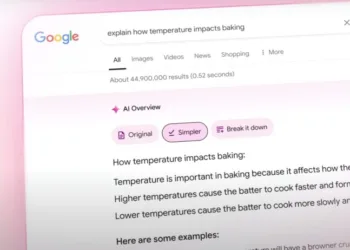The Limits of AI in My Life
With new AI tools popping up everywhere, promising to simplify tasks from scheduling appointments to drafting messages, it’s hard not to appreciate the advancements in technology. However, there are certain aspects of my life that I wouldn’t entrust to AI.
1. Making Ethical Decisions
Ethics is a nuanced area where AI just can’t cut it for me. Ethical choices aren’t always clear-cut; they require empathy, intuition, and personal experience. When confronted with a challenging decision—like whether to bend a rule or prioritize one person’s needs over another—AI lacks the human qualities that shape our moral judgments.
Take, for example, the decision to support a friend’s difficult choice. An AI would likely analyze facts and data, but ethical dilemmas are deeply personal, shaped by our values and experiences. These intricacies cannot be reduced to mere algorithms, no matter how advanced.
2. Navigating My Love Life
Romance is another realm where AI falls short. Relationships are filled with complexities and emotions that go far beyond simple compatibility metrics. Love is often unpredictable and messy, with nuances that AI can’t comprehend. While it may provide data-driven advice, it misses the essence of what makes a relationship unique.
Trusting an algorithm to guide my decisions about who to date or how to resolve a conflict isn’t feasible. Love requires self-reflection and a deep understanding of human emotions—qualities that AI simply lacks. My love life should be shaped by my experiences and instincts, full of the spontaneous moments that make relationships memorable.
3. Parenting Choices
Parenting demands intuition, patience, and an emotional bond that only a parent can provide. AI may have access to a wealth of parenting tips and statistics, but it can’t truly understand my child or the unique qualities that define them. Every decision, from guiding behavior to nurturing interests, stems from a deep understanding of who my child is.
For instance, when a child is upset over what seems trivial to an outsider, an AI might suggest a standard reaction. But a parent knows how to respond with empathy, whether that means giving them space or offering comfort.
4. Career Guidance
Turning to AI for career advice also raises concerns. For AI to offer meaningful insights, it needs context about my situation—confidential and personal information that I wouldn’t want to share. Relying on an algorithm to navigate workplace dynamics or career challenges feels risky, especially considering data privacy concerns.
If I’m facing a complex issue at work, a machine might provide generic guidance. However, without understanding the intricacies of my environment, it can’t offer the tailored advice that a trusted mentor could.
5. Writing Personal Correspondence
When I write letters to family and friends, I pull from shared memories, inside jokes, and unique experiences that only we understand. These personal touches cannot be replicated by an algorithm. For example, drafting a birthday letter using an AI tool could generate generic sentiments, but it would miss the heartfelt nuances of our friendship that made us laugh until we cried over a silly moment.
A handwritten letter encapsulates warmth and authenticity, reflecting my true thoughts and feelings.
6. Messaging Friends
The idea of having an AI handle my conversations with friends feels particularly off-putting. Messaging is about connection and enjoyment; passing that off to an algorithm feels like losing a piece of myself. If I ever feel like I need AI to communicate, it might be a sign that I shouldn’t reach out at all.
7. Major Life Changes
When it comes to significant life decisions—like switching careers, moving cities, or ending relationships—these choices are fueled by emotions, values, and personal reflections that go beyond simple data points. While AI can provide statistics and suggestions, it doesn’t have the ability to understand my feelings or desires.
For instance, AI might analyze job markets or living conditions but will never comprehend the emotional impact of leaving behind family and friends. Decisions like these require a personal touch, which is something I prefer to handle myself.
Conclusion
While AI offers impressive capabilities, there are deeply personal aspects of life where human touch, instinct, and individuality are irreplaceable. I appreciate the utility of AI, but for these significant areas, I cherish the human experience above all.







![[keyword]](https://www.digitalphablet.com/wp-content/uploads/2024/09/Ultimate-Guide-to-Potions-in-Pokemon-Go-120x86.webp)



